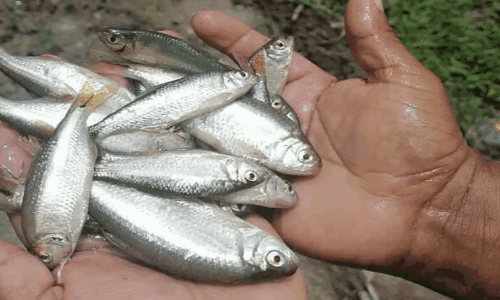Adverts
Hiccups are curious phenomena that, despite being common, still carry an air of mystery for many of us. We have probably all experienced that embarrassing moment when an unexpected hiccup interrupts an important conversation or a silent meeting. But what actually causes this involuntary reaction from our body? And, more importantly, how can we effectively control or even eliminate hiccups?
In this article, we’ll dive into the inner workings of our bodies to better understand what causes hiccups. From dietary and emotional factors to physiological issues, we’ll examine all the possible causes so you can identify the underlying cause of your hiccups. We’ll also explore some proven techniques and practical tips that promise to provide quick and lasting relief from the condition.
Adverts
If you’ve ever found yourself desperately searching for an effective solution or even a logical explanation for your hiccups, this is the right place. Get ready to unravel this mystery and make hiccups a thing of the past, ensuring more peace of mind in your daily life. Don’t let hiccups take over – find out how to combat them once and for all! 🔍

Understanding the Hiccup Phenomenon
Hiccups, technically known as singultus, are involuntary contractions of the diaphragm, the muscle located below the lungs that aids in breathing. These sudden, repetitive contractions cause the vocal cords to close abruptly, producing the characteristic “hic” sound. The phenomenon can be triggered by a variety of factors, such as eating quickly, drinking carbonated beverages, sudden changes in stomach temperature, or even emotionally stressful situations. Although usually harmless, hiccups can be uncomfortable and embarrassing in certain social situations.
Adverts
Hiccups are a reflexive response of the body, controlled by the central nervous system. The exact origin of this reflex is still the subject of scientific study, but it is believed to have evolutionary roots. In some cases, hiccups can last for prolonged periods, known as persistent or intractable hiccups, which require medical attention.
The Role of the Diaphragm and the Nervus Phrenicus
The diaphragm plays a central role in the mechanism of hiccups. This muscle, when involuntarily contracted, initiates the hiccuping process. The phrenic nerve, which transmits signals from the brain to the diaphragm, is also directly involved in this reflex. Any irritation or excessive stimulation of the phrenic nerve can lead to the occurrence of hiccups.
The following table illustrates the main functions of the diaphragm and phrenic nerve:
Recommended Articles:
FunctionDiaphragmPhrenic nerveBreathingMain muscle in inspirationTransmits impulses for contraction of the diaphragmReflex functionInvoluntary contraction during hiccupsSends signals to initiate the hiccup reflex
Understanding how these components work is crucial to developing effective intervention methods when hiccups become bothersome or persistent.
Proven Strategies to Relieve Hiccups
There are several widely recognized and recommended techniques for relieving hiccups. One popular method involves interrupting the respiratory cycle, such as holding your breath for a short period of time. This technique increases the concentration of carbon dioxide in the blood, which can help suppress the hiccup reflex.
Another approach is to stimulate the vagus nerve, which can be done by swallowing a spoonful of sugar or drinking a glass of cold water quickly. Stimulating this nerve helps regulate the rhythm of hiccups by calming the reflexive response.
Breathing Exercises
Controlled breathing exercises can also be effective in reducing hiccups. Techniques such as diaphragmatic breathing, where you breathe deeply so that your abdomen expands instead of your chest, can relax your diaphragm and help control the hiccup reflex.
Folk Remedies and Their Effectiveness
Several home remedies have been traditionally used to combat hiccups. One such method is to drink water while leaning forward. This position is believed to help stabilize the diaphragm, breaking the hiccups cycle.
Another method is chest compression, where gentle pressure is applied to the chest while leaning forward. This technique can induce a vagal response, calming the nerve that contributes to hiccups.
When to Seek Medical Help?
While most hiccups go away within minutes or hours, there are times when they may indicate more serious underlying medical conditions, such as gastroesophageal reflux disease or neurological disorders. Hiccups that last more than 48 hours are classified as persistent and should be evaluated by a healthcare professional.
Intractable hiccups that continue for more than a month require urgent medical attention as they may be a symptom of more serious conditions such as multiple sclerosis or a brain tumor. In these cases, detailed medical tests such as an MRI or endoscopy may be required to identify the root cause.
Advances in Hiccup Research
Scientific research continues to explore the underlying mechanisms of hiccups and their possible solutions. Recent studies have focused on pharmacological treatments, such as baclofen, a muscle relaxant that has been shown to be effective in cases of persistent hiccups. In addition, there is growing interest in therapeutic approaches, such as electrical stimulation of the vagus nerve.
The table below summarizes some of the most recent advances:
TreatmentDescriptionBaclofenMuscle relaxant for persistent hiccupsVagus nerve stimulationTherapeutic intervention to regulate the hiccup reflexResearch into new drugsDevelopment of specific medications for hiccups
Hiccups may seem like a trivial inconvenience, but the search for effective solutions continues to be an active field of research, with the potential to significantly improve the quality of life for those affected by persistent hiccups.
Conclusion
In conclusion, understanding the mystery behind hiccups is essential to effectively dealing with this common annoyance. Hiccups can be caused by a variety of factors, from eating too quickly to sudden changes in temperature. While they are usually harmless, they can become persistent and annoying. Therefore, knowing how to get rid of them once and for all is crucial.
First, to prevent hiccups, it is important to adopt healthier eating habits, such as eating slowly and avoiding carbonated drinks. In addition, simple techniques, such as holding your breath for a few seconds or drinking cold water, can often quickly stop the hiccups cycle. In addition, using more curious methods, such as pulling the tongue out slightly, can be effective for some individuals. 😊
In more persistent cases, it is advisable to consult a healthcare professional, especially if the hiccups last for more than 48 hours. These may indicate an underlying medical condition that needs attention. In short, with knowledge and a few tricks up your sleeve, it is possible to minimize the discomfort caused by hiccups and continue with your day without interruptions. 🔍
Finally, share these tips with friends and family so everyone can enjoy a hiccup-free life. 🌟




